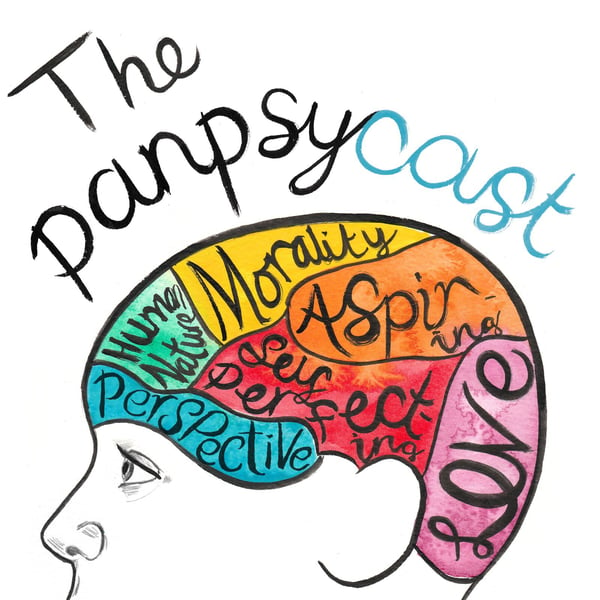Episode 124, ‘Narrative Critique’ with Rachel Fraser (Part I – Disrupting Ideology)
The Panpsycast Philosophy Podcast
Jack Symes | Andrew Horton, Oliver Marley, and Rose de Castellane
4.8 • 604 Ratings
🗓️ 19 November 2023
⏱️ 37 minutes
🧾️ Download transcript
Summary
Two people can encounter the same state of affairs – a crime, a book, a building – and yet their attention, interests, and emotional responses can be radically different. The perspectives of others are closed off from us, and our perspectives are closed off from them … that is until we share our stories. In recent years, social and political movements have utilised the power of storytelling by encouraging the sharing of first-personal accounts. For example, the #MeToo movement and #ShoutYourAbortion campaign encouraged women to share their experiences of sexual violence, harassment, and abortion in order to challenge the ideologies that allow sexism and misogyny to exist. According to Dr Rachel Fraser, these narratives play an indispensable role that can never be performed by theory and statistics.
In this episode, we’ll be speaking to Dr Fraser, Associate Professor at the University of Oxford, about how personal narratives allow us to challenge social scripts, refocus our attention, and alter the perspectives that, ultimately, shape our lives and institutions. For Fraser – who specialises in a range of fields, including epistemology, aesthetics, philosophy of language, and social and political philosophy – narratives offer a window into our lives and reveal moral truths that serve to critique dangerous ideologies and overcome injustice. Silencing ourselves and others is a surefire way to perpetuate inequality; if we want to bring about a better world, then we must learn to speak and listen.
This episode is produced in partnership with the Aesthetics and Political Epistemology Project at the University of Liverpool, led by Katherine Furman, Robin McKenna, and Vid Simoniti and funded by the British Society of Aesthetics.
Contents
Part I. Disrupting Ideology
Part II. Further Analysis and Discussion
Transcript
Click on a timestamp to play from that location
| 0:00.0 | Just a heads up, we reference some sensitive content throughout this episode, including material relating to sexual violence. |
| 0:06.4 | Thank you for listening. We hope you enjoy the show. |
| 0:16.7 | Two people can encounter the same state of affairs, a crime, a book, a building, and yet their |
| 0:23.2 | intention, interests and emotional responses can be radically different. The perspectives of others |
| 0:29.3 | are closed off from us, and our perspectives are closed off from them. That is, until we share our |
| 0:35.0 | stories. In recent years, social and political movements have utilized the power of storytelling |
| 0:40.3 | by encouraging the sharing of first personal anecdotes. |
| 0:43.3 | For example, the hashtag Me Too movement and hashtag Shout Your Abortion campaign |
| 0:48.3 | encourage women to share their experiences of sexual violence, harassment and abortion |
| 0:53.3 | in order to challenge the |
| 0:55.1 | ideologies that allow sexism and misogyny to exist. According to Dr Rachel Fraser, these |
| 1:00.8 | narratives play an indispensable role that can never be performed by theory and statistics. In this episode, |
| 1:07.2 | we'll be speaking to Dr Fraser, Associate Professor at the University of Oxford, |
| 1:11.5 | about how personal narratives allow us to challenge social scripts, |
| 1:15.4 | refocus our attention, and alter the perspectives that ultimately shape our lives and institutions. |
| 1:21.2 | For Fraser, who specialises in a range of fields, including epistemology, aesthetics, philosophy of language, |
| 1:28.5 | and social and political philosophy, narratives offer a window into our lives and reveal moral truths that serve to critique |
| 1:33.9 | dangerous ideologies and overcome injustice. |
| 1:37.5 | Silencing ourselves and others is a surefire way to perpetuate inequality. |
| 1:41.7 | If we want to bring about a better world, then we must learn to speak and listen. |
| 1:59.9 | Hello and welcome to episode 124 of the Panseyecast. |
| 2:06.6 | Reading from the script, I'm Jack Symes, and I'm delighted to be joined once again by the cognitively |
... |
Please login to see the full transcript.
Disclaimer: The podcast and artwork embedded on this page are from Jack Symes | Andrew Horton, Oliver Marley, and Rose de Castellane, and are the property of its owner and not affiliated with or endorsed by Tapesearch.
Generated transcripts are the property of Jack Symes | Andrew Horton, Oliver Marley, and Rose de Castellane and are distributed freely under the Fair Use doctrine. Transcripts generated by Tapesearch are not guaranteed to be accurate.
Copyright © Tapesearch 2025.

